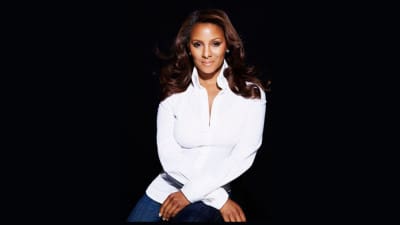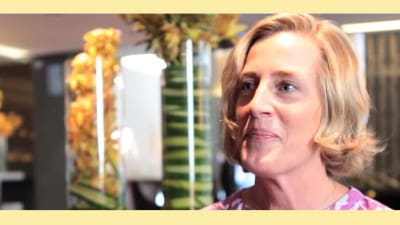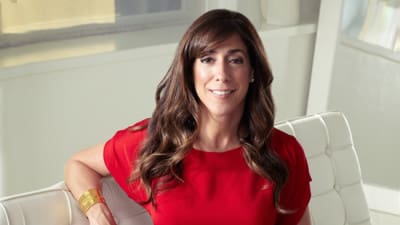As a publicist, Marvet Britto’s roster is deep with celebrities (Angela Bassett, Kim Cattrall and the NBA’s Tyson Chandler), blue chip companies (Motorola and Microsoft) and an entire island (Anguilla).
And while many in the PR biz toil in virtual anonymity on behalf of their clients, Britto is a star in her own right, with 80,000-plus Twitter followers and regular appearances on MSNBC, the Today show and HLN to discuss her work as a global brand and PR strategist.
Surprisingly, in an industry that runs on personal connections, the New York native’s secret for PR superstardom is less about who she knows and is instead firmly rooted in how hard she’s willing to work.
“I actually call networking ‘not working,'” she says. Here, she discusses what it really takes to land a high-profile client and why she has no problem walking away from one.
Name: Marvet Britto
Position: President/CEO of The Britto Agency and TV, film and theater producer
Resume: Went to college for two years and then worked odd jobs (waitressing, etc.) while researching the PR industry. After no luck finding internships or full-time positions, opened her own firm, The Britto Agency, in 1993. Past clients include Payless, Motorola, Mariah Carey, and athletes Gary Sheffield and Stephon Marbury. Shaped the exit campaign for former New York governor David Paterson’s move into the private sector, including landing him an appearance spoofing himself on Saturday Night Live. Co-executive producer of the films The Woodsman and Shadowboxer and producer of the plays Mama I Want to Sing and the Tony-nominated The Trip to Bountiful.
Birthday: March 11
Hometown: Manhattan
Education: Attended Tuskegee University for two years
Marital status: Single
Media idols: Oprah and Tamron Hall because “she multitasks. She’s got a million jobs. I love her energy and her spunk and her passion for her craft.”
Favorite TV shows: 60 Minutes and anything on CNBC and The History Channel
Guilty pleasure: Sweets
Last book read: The Bible
Twitter handle: @MarvetBritto
You’ve represented a slew of celebrities. How did you score your first high-profile client, and what advice do you have for up-and-coming publicists to do the same?
For me, it was always about my personal business acumen and really focusing on the value system I felt I could bring to clients. And I’m blessed to say, in almost 20 years of business, I’ve never solicited one client. They have all come to me based on referrals, and I would hope it has been fueled by the work I have done.
I think, so often today, people really spend most of their time networking. I actually call networking “not working,” because most people go to rooms, or dinners, or events and spend 90 percent or more of their time talking to people they already know.
So, for me, I felt as though I would just simply do the work and do the work to the greatest degree of excellence and others would gravitate to me. They would seek me out based on the mutual desire to achieve a similar level of excellence. I believe that when you do something well, you will create a category and begin to define and build your own brand, [to] which others will, like a magnet, be drawn to you.
So, in my instance, everyone from Angela Bassett to Kim Cattrall to Mariah Carey to companies like Motorola have all sought me out for my services, based on the talent of my firm and the capabilities of my firm.
So you’re saying that as long as people do their work and do it well, they’re going to get the big clients and the big opportunities.
Yeah, because people like hard work. People gravitate to people who toil tirelessly in any industry. People see. That’s what they notice. That’s what becomes your business card, if you will. We call it “brand” in this day and age, but you really become known for your pedigree and your work.
I think that so many people are interested in the introduction to people being made, but your introduction needs to be your body of work. So, really, you should hone [your skills] and really be laser focused on doing the best work that you can do, because that is the best resume any person could have.
You know, a lot of people are working on their social currency when they should be focused on their work currency. They should be focused on doing the work, because, at the end of the day, people are referred based on the work.
We’re in this generation of microwave success. Everyone wants to press 2-0-0-Start and be their favorite person tomorrow. They want to be Marvet Britto tomorrow, not realizing that it took me 20 years to get here, and I’m still toiling 18-, 19-hour days, trying to really cement my place in the realms and world of PR.
What do you do when your own moral convictions or beliefs interfere with your work with a client?
You step away from it. I have a scripture on my wall that I look at from my desk, and it says simply, “For what shall it profit a man if he shall gain the whole world, yet lose his own soul,” Mark 8:36. That is on the wall of my office, and it has been for 20 years. And that scripture is there because it reminds me that nothing I do in my life or business should ever compromise my moral compass.
We’re living in a generation where people compromise their morals for financial or personal gain, [but] for me it really is not about sacrificing my character or integrity to excel in life, because ultimately the very thing that you do to get ahead will be the very thing that keeps you from ever really growing in business.
So, I always tell people that karma never loses an address. And sometimes in business you get a little bit discouraged by being overlooked, or being passed over, or not being supported, or any of the things that we face in business, but I believe that if you keep a high level of standards in your operating procedures, you will be respected for such.
I always tell people, “It’s not what you say yes to, it’s what you say no to that builds equity.” So, for me, I’ve had to stop working with A-list clients. I knew that I was being asked to compromise my morals or my character or integrity to protect them or to work with them, and I wasn’t willing to do so. I’ve always run my business from a place of truth. There are a lot of people that believe that being a publicist means that you’re supposed to protect your client at any costs.
I don’t subscribe to that school. I subscribe to the school of being completely transparent with media and being completely transparent and truthful because, at the end of the day, truth is what elevates brands. When you are a truthful brand, you will create an organic connection to your consumer.
You were instrumental in getting the cast of Real Housewives of Atlanta to Anguilla this past season. What do you say to people who criticize PR orchestrations like that on reality shows or elsewhere? Do you think the network has an obligation to disclose your involvement?
I don’t think the network hid my involvement. I think Peter [Thomas, cast member] spoke about his friend, who’s a publicist, who arranged for the housewives to go to Anguilla. I’m the global brand strategist for the island of Anguilla, and any time I represent something that’s beautiful and excellent, I want to make sure that I’m able to share that with our community.
So, I don’t think it was a secret. But, for me, being on camera for the Housewives would have been gratuitous. There wouldn’t have really been a purpose apart for me getting shine, when I represent the island and I wanted Anguilla to be the star.
What is the most important skill that publicists need?
Communication. I think a lot of PR people forget that communication is the singular most important tool that you must employ. I’m hearing these days that a lot of publicists don’t necessarily return calls; they’re not getting back to people swiftly, and they’re emailing and they’re losing the art of personal.
And that’s why I always encourage people to read Terrie Williams’ book, The Personal Touch, because to be a rock star in PR you have to be a great communicator. You have to communicate people’s needs and aspirations. That’s the only thing that will allow you to thrive in this business.
It seems like everyone has a PR firm. When is the right time for publicists to strike out on their own, and when do they need to stay under the tutelage of someone more experienced?
To be honest with you, I only started my own firm because I didn’t have any PR experience, and I wasn’t able to work within a firm with no PR experience. I think that people should stay within an incubated professional environment as long as they can, because being a business owner is a very difficult road.
There are a lot of moving parts, and it’s not easy being a business owner and dealing with all of the various aspects of business, from staffing to payroll to employees. You have to deal with all the things, and even if you have a team, like I do, you still have to oversee it. So, if you can work for someone and have the freedom to create, then that’s the best thing.
And I also have to say I was very blessed to have some great, A-list clients. Social media has allowed there to not be as many superstars as there used to be, because stars now are becoming more accessible, which means that their equity has become more diluted. So, in order to strike out on your own, you have to really have an arsenal of powerful alliances and clients to support you. And if you don’t have that, then it’s very difficult, not only to financially sustain yourself, but to make a mark in a very cluttered industry.
This interview has been edited for length and clarity.









